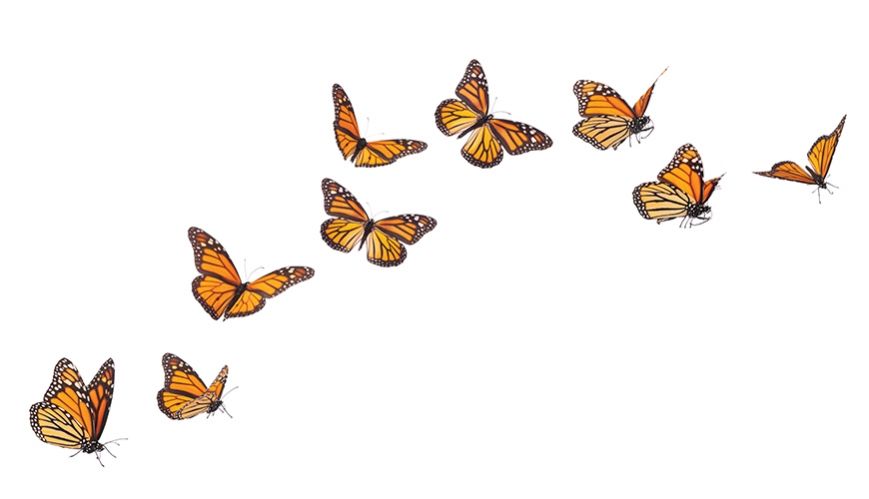Glimpsing hope at Easter

Glimpsing hope at Easter
11 April 2022
We can feel hopeful about something, but it’s also a mental attitude we can harness. (Getty Images)
Once upon a time, in a place far away, as a long cold winter drew to a close, a woman gazed out her window, longing to see more than bare branches and grey skies. She noticed a slight tinge of green on the forsythia bushes and, grabbing a pair of shears, she headed outside.
She cut some bare stems from these barren-looking bushes and brought them inside. As she placed them in the water, she saw tiny buds just beginning to form. Soon, she thought, these buds would blossom into glorious flowers.
This is a picture of hope: knowing that branches that now look brown and bare will burst into flower as the spring sunshine breathes warmth upon them. This is the recognition that all is not what it seems.
That gets me thinking about hope. What is it? Where does it come from? How can I experience more of it? And how can I be a person of hope in a world that seems so full of hopelessness?
Many things can dampen, even steal, our hope. People, organisations, technology, medical advances, and so on that we once placed our hope in have let us down or proven not to be, or have, the answers we expected. This can be crushing and can lead to discouragement, even despair.
A new perspective
But it doesn’t need to. We can discover, or rediscover, hope and find a new perspective on situations we encounter in the world around us. Hope is not just a feeling, and it is far more than simply wanting things to get better. We might hope to pass our exams, but hope will not do much for us unless we put some effort into studying. Hoping to lose weight won’t change our body shape if we don’t make any lifestyle changes. We might hope it doesn’t rain on our picnic … but that’s not something we can reasonably put our hopes in without at least checking the weather forecast – and perhaps having an alternative plan!
Hope is looking forward to something positive, with the reasonable expectation that it will happen. It is confidently anticipating something good or desired.
We can feel hopeful about something, but it’s also a mental attitude we can harness. Feeling hopeful will do us no good without some awareness of the reality surrounding that situation. Hope is a mindset that involves every part of our being. It’s a conscious choice that arises from and influences how we feel and is a catalyst for action. Being hopeful consists of both belief and expectation. Recent research shows hope changes the physiology of our brains in positive ways, releasing chemicals that ease pain and enable us to feel more positive.
Jane Goodall, the English primatologist and anthropologist, describes hope as something that “enables us to keep going in the face of adversity”, as a “human survival trait and without it, we perish”. Many things we hope for can prompt us to action, to put in some effort to bring about the desired outcome. There are also things we hope for that we might not be able to do anything about. This is where it is hardest to hold on to hope. Perhaps we need to look for new perspectives or find small signs that something good is already happening in such situations, even if a difficult situation is not yet resolved.
No season is final
The rhythms of the created world remind us that the darkest, coldest, and harshest seasons eventually end. No matter what else is going on in the world, in our own lives, each day, the sun will set and each morning, it will rise again. Even with the unpredictability and chaos brought on by climate change, the sun, moon and stars, high tide and low tide, full moon and new moon continue in their regular rhythms – offering hope and the reminder that no phase, no season, is final.
I know enough to be sure that even after a long, bitter winter, daffodils will appear, trees will again be green, and fruit trees will blossom. I discover hope in the changing of the seasons and the rhythms that have been set in place since the beginning of time.
I choose to hold on to this knowledge. I won’t always feel the hopefulness of spring when I am in the middle of winter or might not be able to visualise the light of dawn when the darkness of midnight still hovers over me. I don’t feel it – but I choose to believe it, knowing it to be true. Hope is a choice, not a feeling.
New life
And those bare brown forsythia branches? I brought them inside on the day that the Christian world marks the death of Jesus Christ (Good Friday). On Easter Sunday morning, as Christians worldwide celebrated the resurrection of Christ, those bare branches were a mass of golden flowers. Easter is a celebration of hope and new life.
Each Easter, we remember all is not as it appears. Each sunset, we remember the darkness will eventually fade, and dawn will come. Each low tide reminds us there will be a high tide. We can choose to hope good things will come, even when we don’t yet see them. We can choose to hope there is good in life even amid sorrow and suffering. We can choose hope, even when we don’t feel hopeful.